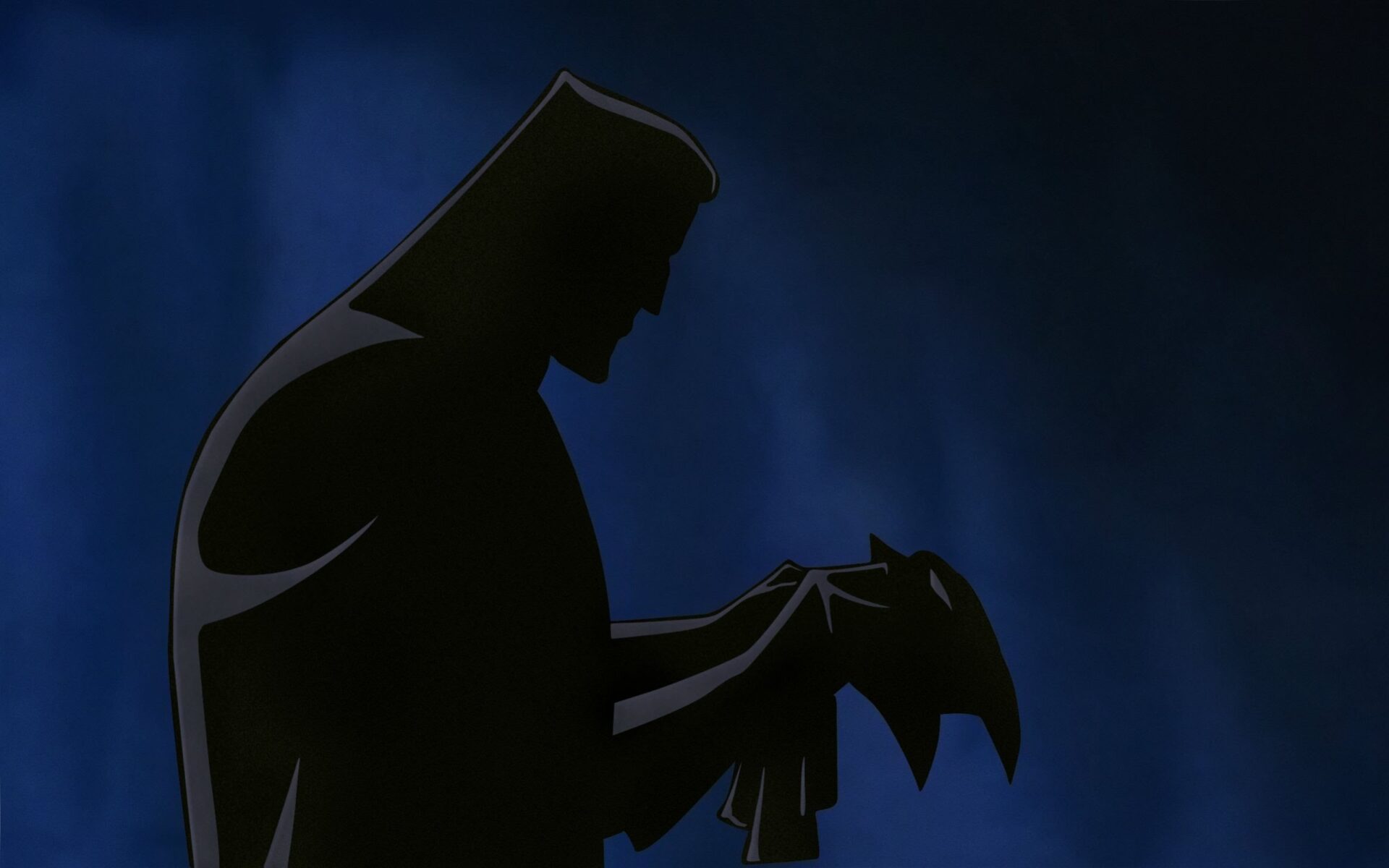“It doesn’t mean I don’t care anymore. I don’t want to let you down, honest, but…but it just doesn’t hurt so bad anymore,” a rain soaked Bruce Wayne pleads at the resting place of his late mother and father. It’s an astonishingly poignant moment, in an animated film laden with them, that reveals not just the degree of our hero’s mental illness (every great interpretation of Batman after all properly paints Bruce Wayne as borderline insane), but that we can sometimes never outlive the impossible expectations our parents have for us, or at least we create in their name. It’s the son or daughter of the once “All State” high school athlete, that no matter what degree of success they may find themselves, will never live out of the shadow of a name. 1993’s Batman: Mask of the Phantasm (Phantasm going forward), is about reconciling a history of unmet expectations by burning it all to the ground. In the many iterations of the character before it, and most definitely since it’s release, the film holds up as a supreme example of what characters like this can mean when given the proper dedication in development.
The film was an extension of the much applauded Batman: The Animated Series, which debuted a little over a year before. The series was always heralded by critics and fans for its loyalty to the original iterations and themes from the comic books. The series always maintained a level of maturity that until then hadn’t been matched with animated content with the main subject being a hero in tights fighting bad guys. The show was ambitiously drawn by the artists, sophisticated written, and performed with true gravitas by the voice talent. It continued the Batman obsession in the world, coming off the heels of two mega successes financially in Tim Burton’s films Batman (1989) and Batman Returns (1992). The series garnered a similar tone at times to Burton’s films, although I would argue that being due primarily to the Danny Elfman created theme for the series, and the numerous scores composed by others that lifted similar queues. Where the Burton films’ humor may have been much more entrenched in the black comedy sorts, the animated series offered a more appropriate lighthearted approach when necessary. It’s truly one of the pinnacles of animated television, not just for comic book fans, but for anybody craving a endless treasure trove of entertainment.
Phantasm’s plot revolves around a ghoulish new villain in Gotham City with some resemblance to Batman, going around and picking off mob bosses. Doing so in a way that leaves eye witnesses distraught and placing blame on our hero. This leaves Batman and Bruce obsessive, trying not only to clear themselves from the suspect light but also figure out why such specific targeted victims. When one of Gotham’s now retired crime bosses, Salvatore Valestra (Abe Vigoda) reads in the paper that Batman may be targeting his type, he seeks in desperation the help of The Joker (Mark Hamill) hoping to eliminate the threat. Parallel to this is the return to Gotham of Bruce’s former lover Andrea Beaumont (Dana Delany), that we learn in one of many flashbacks was as good as engaged to Bruce until mysteriously vanishing from Gotham without an answer.
It’s through previously mentioned flashback sequences that we see Bruce’s early iteration of vigilante justice on trek to become the Batman (At one point donning a ski mask and attempting to break up a small scale heist). It’s all rough, but he’s on the right track. I specifically love the version of Bruce Wayne presented here as well as throughout the animated series. Where other versions of Bruce, especially the live actions films, show the character as masking any possibility of being a superhero by being obnoxious, pompous and even crude; Conroy’s vocal talents lend for a more thoughtful Bruce Wayne. The flashbacks also give deep insight into Bruce and Andrea’s relationship. They meet cute in a cemetery, both carrying out conversations with dead parents. Andrea is a strong female character to say the least, and a revelation late in the film shows the depth in the similarities between her and Bruce’s psyche. What’s so great about Phantasm, is that every character has a moment that fleshes out their backgrounds and desires with great detail. Saving best for last, Mark Hamill’s iconic voicing of The Joker still brings a dynamic realm of reaction. It’s one of the most likable versions of a villain ever, and we’re given a small but meaningful origin that gives even greater meaning to the films bombastic conclusion.
It’s more than understandable for people to have complete exhaustion with the comic book movie genre, but I truly think it’s important for those out there that have never experienced this film to add it to their watch list as soon as possible. It’s a timeless example of just how resonate not only the comic book genre of films can be, but the animated genre as well. The movie has held up over time so greatly because it doesn’t exclude any possible audience members, as it’s accessible for someone of any age to enjoy. Batman: Mask of the Phantasm still stands well above the pack as a far as Batman origin stories go because it provides a very simple avenue in being able to relate with the main character. It’s a movie that I have admired since I was a child, and have only grown to appreciate more now that I have an immense amount of life experience to bring into it. Loss and heartbreak have long dictated the paths of human beings, and to see those awful feelings haunt even characters who stand as towering symbols of strength, is an echoing reminder that it’s okay to not be okay sometimes.













